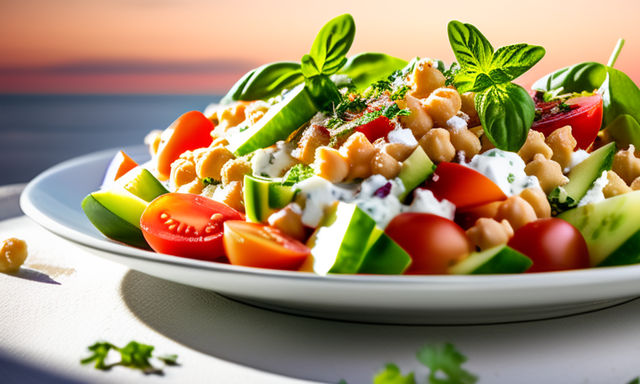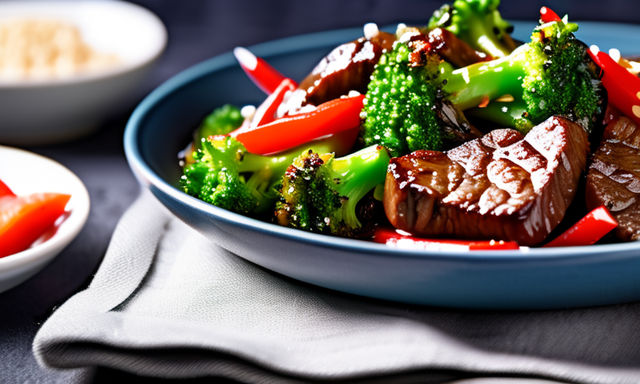Iron-Rich Foods for Pregnancy: Nourishing Both Mother and Baby
Pregnancy is a time of profound transformation and growth, demanding increased attention to nutritional needs to support both the mother and the developing fetus. Among the essential nutrients, iron stands out due to its critical role in supporting maternal health and fetal development. This blog post delves into the importance of iron during pregnancy, highlighting iron-rich foods that can help meet the increased demands of this life stage.

The Importance of Iron in Pregnancy
Iron is a vital mineral that plays a key role in forming hemoglobin, the protein in red blood cells that carries oxygen to various parts of the body. During pregnancy, the body's blood volume increases by up to 50%, escalating the demand for iron to support this expansion and ensure adequate oxygen supply to the mother and the growing baby. Adequate iron intake during pregnancy is crucial for:
- - Preventing Anemia: Iron deficiency anemia is common in pregnancy and can lead to fatigue, increased risk of infections, and complications such as preterm delivery and low birth weight.
- - Supporting Fetal Development: Iron is essential for the fetus's growth and brain development, particularly in the second and third trimesters.
- - Reducing the Risk of Postpartum Complications: Sufficient iron stores help reduce the risk of postpartum anemia and support overall recovery after childbirth.
The recommended daily iron intake for pregnant women is about 27 mg, a significant increase from the 18 mg recommended for non-pregnant women. Meeting this requirement can be challenging through diet alone, especially for those with pre-existing iron deficiencies or dietary restrictions.
Top Iron-Rich Foods for Pregnancy
Incorporating iron-rich foods into your diet is a natural and effective way to meet your increased iron needs during pregnancy. Here are some nutritious options:
1. Lean Red Meat: Beef, lamb, and venison are among the best sources of heme iron, which is more easily absorbed by the body compared to non-heme iron found in plant-based foods.
2. Poultry and Fish: Chicken, turkey, and fish, particularly salmon and tuna, provide substantial amounts of iron and are also rich in other vital nutrients like protein and omega-3 fatty acids.
3. Legumes: Beans, lentils, chickpeas, and soybeans are not only great sources of iron but also pack a punch of protein and fiber, making them a great option for vegetarian and vegan diets.
4. Leafy Green Vegetables: Spinach, kale, and Swiss chard are loaded with iron. Although they contain non-heme iron, combining them with vitamin C-rich foods can enhance absorption.
5. Nuts and Seeds: Almonds, cashews, pumpkin seeds, and sesame seeds are good sources of iron and healthy fats, perfect for snacking or adding to salads and meals.
6. Whole Grains and Fortified Foods: Whole grain bread, cereals, and pastas, especially those fortified with iron, can contribute significantly to daily iron intake.
7. Dried Fruits: Dried apricots, prunes, and raisins are not only iron-rich but also provide fiber and natural sweetness to your diet.
Enhancing Iron Absorption
To maximize iron absorption from your diet, consider the following tips:
- - Pair Iron-Rich Foods with Vitamin C: Consuming vitamin C-rich foods like oranges, strawberries, bell peppers, and broccoli alongside iron-rich foods can enhance non-heme iron absorption.
- - Limit Calcium-Rich Foods During Iron-Rich Meals: Calcium can inhibit iron absorption, so it's best to separate calcium and iron-rich meals when possible.
- - Cook in Cast Iron Cookware: Cooking acidic foods in cast iron pots can increase the iron content of your meals.
Conversely, certain substances can inhibit iron absorption, including:
- - Caffeine: Found in coffee and some teas, caffeine can reduce iron absorption.
- - Calcium: While essential during pregnancy, calcium can interfere with iron absorption if consumed in large amounts simultaneously.
Introducing the High Iron 2000 kCal 7-day Plan
While maintaining a balanced diet is crucial during pregnancy, ensuring adequate iron intake can sometimes be challenging. To simplify this aspect of your nutritional journey, we've crafted the High Iron 2000 kCal 7-day Plan. This comprehensive meal plan is designed to provide a variety of iron-rich meals that are delicious and easy to incorporate into your daily routine.
Key features of the plan include:
- - Diverse meals rich in both heme and non-heme iron sources.
- - Foods that enhance iron absorption, ensuring you get the most out of every meal.
- - Balanced 2000 kcal daily intake to support overall health and wellness.
It's important to note that this plan is designed to complement a balanced diet and should not replace medical advice or iron supplementation prescribed by healthcare professionals. It's not specifically tailored for pregnant women but can be a valuable resource for anyone looking to boost their dietary iron intake.
Ready to embrace a diet rich in iron and support your body's needs? Explore our High Iron 2000 kCal 7-day Plan and take a step towards optimizing your nutritional well-being with delicious, iron-packed meals.

Consultation and Supplementation
While dietary sources are fundamental, some pregnant individuals may require iron supplements to meet their needs, especially if diagnosed with iron deficiency anemia. It's essential to consult healthcare professionals before starting any supplements, as excessive iron can have adverse effects.
The Bottom Line
Iron is indispensable for a healthy pregnancy, supporting vital functions for both mother and baby. By emphasizing iron-rich foods and adopting strategies to enhance absorption, you can contribute significantly to a healthy pregnancy outcome. Always consult with a healthcare provider or a registered dietitian to tailor your diet to your specific needs and ensure you're getting the right balance of nutrients during this extraordinary time of life.
Disclaimer: This blog and the High Iron 2000 kCal 7-day Plan are for informational purposes only and are not intended to serve as medical advice or treatment. Always consult with a healthcare professional before starting any new diet, especially during pregnancy, to ensure it meets your individual health needs.
References
1. Brannon PM, Taylor CL. Iron Supplementation during Pregnancy and Infancy: Uncertainties and Implications for Research and Policy. Nutrients. 2017 Dec 6;9(12):1327. doi: 10.3390/nu9121327. PMID: 29210994; PMCID: PMC5748777.
2. Institute of Medicine (US) Committee on Nutritional Status During Pregnancy and Lactation. Nutrition During Pregnancy: Part I Weight Gain: Part II Nutrient Supplements. Washington (DC): National Academies Press (US); 1990. 14, Iron Nutrition During Pregnancy. Available from: https://www.ncbi.nlm.nih.gov/books/NBK235217/
3. Bokhari F, Derbyshire EJ, Li W, Brennan CS. Can an iron-rich staple food help women to achieve dietary targets in pregnancy? Int J Food Sci Nutr. 2012 Mar;63(2):199-207. doi: 10.3109/09637486.2011.618119. Epub 2011 Sep 26. PMID: 21942813.
4. Office of Dietary Supplements - Iron. (n.d.). https://ods.od.nih.gov/factsheets/Iron-HealthProfessional/
5. The American National Red Cross. (n.d.). Iron-rich foods. https://www.redcrossblood.org/learn-about-blood/health-and-wellness/iron-rich-foods
6. Centers for Disease Control and Prevention. (2011). Iron and iron deficiency.
7. Piskin E, Cianciosi D, Gulec S, Tomas M, Capanoglu E. Iron Absorption: Factors, Limitations, and Improvement Methods. ACS Omega. 2022 Jun 10;7(24):20441-20456. doi: 10.1021/acsomega.2c01833. PMID: 35755397; PMCID: PMC9219084.
Ready to level-up?
Create meal plans 10x faster, follow up with your clients through our mobile app, and never struggle with meal planning or recipe management again.